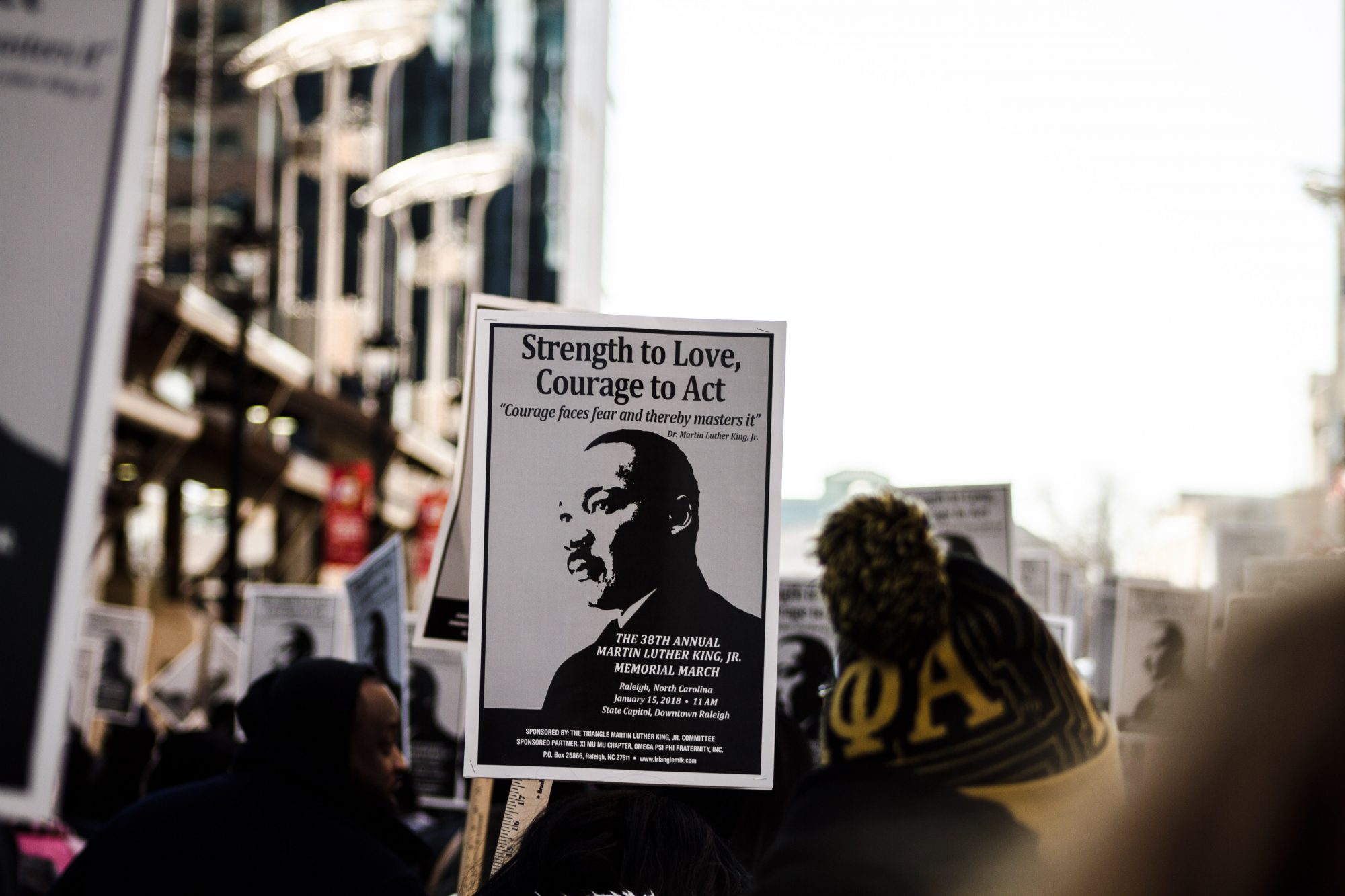This article is part of a progression
As we prepare to honor MLKj, Let’s reflect a moment on whether or not we’re actually honoring him. In full disclosure, prior to this year, I always thought this “holiday” was a little pointless. And, if you’re being honest, you’ve probably thought the same at some point. You’re thrilled to get the day off work/school, but that’s pretty much all it has been to you. I want to challenge you today (and tomorrow) to actually think about all that this man did, all he stood for, and compare it to yourself. Very few people would deny he was a great leader, but are we still honoring his values, or are we ignoring them for our own? If so, what’s the point of honoring him in the first place? If we ignore the tenants of his movement, then why even call him a great leader?
Today I want us to look at the six principles of nonviolence he put forth, and tomorrow we’ll look at the six steps of nonviolent social change. I will give a brief commentary on each, but, it’s up to you to really compare how you’re living to the ideals that MLKj put forth. If you choose not to believe them, that’s up to you. But, if that’s the case, I ask you not to refer to the man as a good leader, or a social rights activist, because you’re dishonoring him by ignoring all he taught us about nonviolence. You can’t believe he did great((and by great I mean good, not just of great proportion)) and while at the same time viewing the ways he did them as not the proper course.
(credit: The King Center)
1. Nonviolence is a way of life for courageous people.
It is active nonviolent resistance to evil.
It is aggressive spiritually, mentally and emotionally.
In a world that’s quick to jump to violence, it really is true that nonviolence is the way of those who are courageous. Violence is hardwired. Even toddlers hit when they don’t get their way. Reacting in ways that aren’t violent is tough. It takes restraint. It takes the courage to say, “the other people may not react as peacefully as I am. Am I willing to be hurt?” If the answer is no, why not? If the answer is yes, then I (and MLKj ) would applaud you for standing up for yourself and others by not resorting to a more basic instinct.
2. Nonviolence seeks to win friendship and understanding.
The end result of nonviolence is redemption and reconciliation.
The purpose of nonviolence is the creation of the Beloved Community.
What does violence accomplish? Apart from hurting people, not much. Violence tends to not only create more violence but also has the inevitability of death. Nonviolence, on the other hand, seeks to redeem not only people, but the relationships we could have with those other people. It’s about reconciliation, not overpowering. When you’re faced with a difficult situation, are you more concerned with winning, or with reconciling?
3. Nonviolence seeks to defeat injustice not people.
Nonviolence recognizes that evildoers are also victims and are not evil people.
The nonviolent resister seeks to defeat evil not people.
This one is a big one, I believe. So often we get caught up in our emotions and forget that those whom we’re arguing are also human. “They’re nothing more than….” fill in the blank. In reality, they’re victims too. “What are they victims of?” you may be asking. While we may be victims of their actions or viewpoints, they’re victims of a society that told them those are appropriate actions and viewpoints. They aren’t evil people. They’re products of a broken world. They can’t help what they’ve been taught. They’re victims of the same society we are. Viewing them as evil people is throwing fuel on their fire, rather than working on coming to an agreement. Are you seeing your “enemies”[note]for lack of a better word[/note] as victims, as people, just as much as you see yourself as one?
4. Nonviolence holds that suffering can educate and transform.
Nonviolence accepts suffering without retaliation.
Unearned suffering is redemptive and has tremendous educational and transforming possibilities.
I will throw a caveat in here. While yes, I do believe that there is an element of transform and education to suffering, this point as worded fails to address something important: nonviolent responses. Even MLKj engaged in response to his sufferings (which often lead to more sufferings) but he did so in a nonviolent way. I fear that too many well-meaning people have fallen prey to the “turn the other cheek” paradigm that is generally understood to mean “just let them do it again without caring.” We’ve discussed before the problems with this. The answer to suffering is not to retaliate, but to return with a nonviolent exposure of their injustice. In return, we may endure more suffering. Are you willing to respond instead of retaliating?
5. Nonviolence chooses love instead of hate.
Nonviolence resists violence of the spirit as well as the body.
Nonviolent love is spontaneous, unmotivated, unselfish and creative.
It’s all well and good to choose physical nonviolence. But how often do we engage in other forms? Political cartoons that deface and devalue individuals with whom we disagree. Rants about so-and-so being stupid and ignorant. Harsh words that have no purpose other than to bring someone down. That’s not nonviolence. That’s emotional violence. Nonviolence chooses love. It says nothing that don’t lift up (even those with whom we are quibbling). And, trust me, I know how hard it is to just retaliate in a kneejerk way that is violent in spirit. That’s where our creativity comes in. Thinking of ways to address situations without resorting to violence is our key asset in any disagreement. Is your rhetoric just as violent as another’s actions?
6. Nonviolence believes that the universe is on the side of justice.
The nonviolent resister has deep faith that justice will eventually win.
Nonviolence believes that God is a God of justice.
This one is big. God will always advocate for justice. There will always be justice in the end. Do we have enough faith to believe that, or do we think our violence is going to do more good than God’s work?
If any of this convicted you, good. I was convicted by parts of it as well even as writing it. Conviction is good. It means we recognize our faults. It means we want to do better. The real question comes at the end, though: are we going to let our conviction change how we act?





